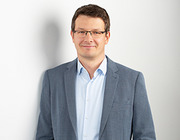Four megatrends are confronting Germany with major challenges: digitalization, increasing social divisions, globalization and demographic change. Each is impacting almost every area of life. The consequences of these changes, and their interdependencies, bring with them the risk that inequality, which is increasing in Germany as in other countries, will continue to grow. A key challenge is therefore promoting participation among all regions and social groups while also providing them with access to more equitable opportunities. This means public services must be universally maintained and quality of life ensured. Moreover, Germany’s economic competitiveness and ability to create value must be further developed throughout the country. Making extensive, proactive use of the opportunities offered by digitalization is one way to achieve these goals and would allow digital solutions to play a key role in increasing participation. The 2017 Reinhard Mohn Prize is meant to contribute sustainable ideas to the discussion of how everyone can be given more and better opportunities to participate.
![[Translate to English:] Digitale Landkarte vor Baustelle](/fileadmin/files/_processed_/8/3/csm__achim_multhaupt-116_change4_2014_ST-K_Original_51535_25474a0d26.jpg)
Achim Multhaupt
Smart Country
Smart Country addresses the challenges of the 21st century. Intelligent technology and connectivity can help everyone participate and can ensure equal standards of living in urban and rural areas.
Smart Country – Connected. Intelligent. Digital.
Digitalization – Chances and Risks
Digital change must be proactively shaped and its opportunities made accessible if a digital divide is to be avoided within Germany and, with it, greater social inequality. The first step is ensuring everyone has high-speed Internet access. Once that is the case, digital solutions will be available that can reduce – and even overcome – the negative impacts of demographic change and the geographical and social differences among Germany’s regions and social groups. Dedicated to the topic of Smart Country, the 2017 Reinhard Mohn Prize is focusing on five areas of activity that are crucial for quality of life, development opportunities and local-level participation:
We are using the topic of Smart Country to examine social megatrends – digitization and demographic change – that are posing major challenges for Germany. These trends are influencing and altering all areas of life.
Brigitte Mohn, Member of Bertelsmann Stiftung's Executive Board
According to Brigitte Mohn, there are regional disparities in Germany’s digital infrastructure, and the access people have to that infrastructure and to digital solutions will determine whether they are included in the future or left behind. “If we want to continue ensuring that living standards in the country’s various regions are as equal as possible, we must quickly put the policy framework in place that is needed for digital and social change,” Brigitte Mohn said. “This means ensuring everyone can participate in education, in the world of work and in how social environments are shaped. It also means ensuring Germany remains a global competitor.”







